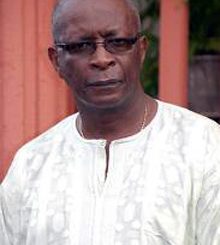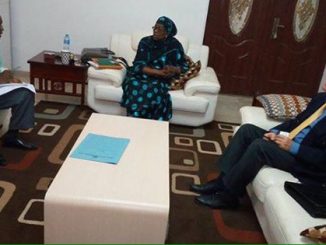
According to legislation, it is the Independent Media Commission (IMC) which has the sole mandate and responsibility to regulate the media landscape in this country. The IMC must have a constituted Board and one its functioning committees is the Complaints Committee that particularly deals with complaints against media practitioners.
Considering the important roles that the media plays in informing, educating and entertaining the populace it is but very much important for media practitioners to practice professionally and within the ambit of the law or code of ethics in order to ensure that libel and slander are checkmated. The emergence of the new media (Social Media), in addition to the traditional Print and Electronic platforms, has made the media a more powerful force to reckon with.
The profession is fraught with various challenges. Journalists have for a very long time called for a repeal of Part Five of the Public Order Act that criminalizes Libel and Sedition but successive Governments only paid lip service to doing that. However, the struggle still continues unabated and with the coming into State Governance, the current SLPP led administration has promised to do so after engagements with the Executive of the Sierra Leone Association of Journalists (SLAJ).
Even President Bio, on different occasions, has recognized the useful roles that the media plays and had pledged to give it the necessary support to make media practitioners more relevant and become true partners in national development.
When the present Government assumed power, it embarked on dissolving the Boards of various state created institutions, one of which was the IMC. Others included the Human Rights Commission and the National Commission for Democracy. It must be borne in mind that these three institutions are very strategic in any political dispensation.
Currently, the IMC cannot effectively regulate the media as stipulated in the Act that constitutes it since it does not have a Board and is now only left with its administrative wing. Literally, the IMC cannot adjudicate complaints forwarded to it without a functioning Board.
What now obtains is that any form of media regulation now falls within the purview of the Police, as its Media Head stated during a recent radio program. This situation has been deemed very unfortunate and precarious as some social commentators have affirmed that the SLP lacks the requisite expertise to assume the functions of the IMC.
Recent events bordering on the use of hammering forces against media practitioners in particular, but not limited to them, are deemed to be unwarranted and unfair vis-à-vis raising dissenting voices against certain decisions and policies that the current SLPP led Government under the leadership of President Julius Maada Bio may be questioned for in the People’s Court.
A recent Press Release issued few days ago by the Sierra Leone Police, without no doubt, sounds as a deliberate and calculated ploy or moves to further muzzle freedom of expression by the Press in terms of analyzing and expressing opinions bordering on Governance issues.
The Release states that the Police are concerned that certain Print, Electronic media practitioners and the Social Media users are in the practice of peddling falsehoods relating to Governance Issues that have the propensity of creating State instability, insecurity and creating fear in the minds of the people.
It then furthered by quoting sections of the 1965 Public Order Act that criminalizes freedom of expression concluding that those who will be deemed as violators of churning out untruths on Governance Issues will be dealt with harshly according to the dictates of the law.
The big question now is why is it that it is at this material moment that the Police are heightening, what they termed, as zeroing on reckless freedom of expression in the wake of a recent wave of intimidation as transpired in the Well of Parliament during the election or selection of the Speaker as well as other instances.
Indeed, it is understandable that media practitioners must act professionally in the discharge of their duties and when doing so to ensure it is done within the confines of the law.
It must be borne in mind that in serious democratic nations citizens must be given the latitude to express their views on emerging issues which have political overtones and have nothing to do with breaching the law. Naturally, there must be occasional frank discussions on pertinent national issues that do emerge from time to time.
In no way must these be thwarted for any reason whatsoever. Whether we have still not yet attained full fledge democratic status, desirously it is our dream and aspiration to get there.
At this material time when the country’s economy is becoming messy and the majority is groaning under the yoke of extreme hardship what is so wrong with people raising their voices against such a negative rising trend (muzzling Freedom of Expression)? Does it make sense that doing so borders on incitement?
Sierra Leoneans are resilient, no longer fools and cannot settle down less for any form of intimidation that will come from any quarter. The people have a right to their views as long as such views are not subversive to an extent that will jeopardize national stability.
It is the avowed popular view that any Government or political dispensation that is worth its salt must have the fortitude to withstand constructive criticisms instead of imposing a blanket ban on freedom of expression. Undoubtedly, such a move cannot work!
Yes it is true that the SLP must be considered to be apolitical and independent, meaning therefore they should take praise and blame for their actions. That their actions must not be tied to the intension or dealings of the current Government, it can be furthered; however, according to our constitution the Vice President is the Chairman of the Police Council and can exert a huge influence on the force. Allegedly, it cannot be swept under the carpet that the Police sometimes take Orders from Above.
Besides, the present Deputy Minister of Internal Affairs, Lahai Lawrence Leema, stated over 98.1 Radio Station that the Police is a sub-set of the Executive arm of Government and by extension is part of the Government which is contrary to the popular view that the Police must be independent. But for the Deputy Minister to express such a view speaks volumes that the Police Force is fettered.
It can be reiterated that certain self-seeking and ill-motivated state functionaries are attempting to suppress freedom of expression but definitely such a move will boomerang big time instead of becoming successful to stand the test of time.
Although, it is constitutionally right for the President to hire and fire people appointed by him, however what many are now calling for is the speedy reconstituting of the IMC Board to ensure that such a vital institution assumes its important role of media regulation in an effective way instead of leaving such in the hands of the SLP who have already exhibited preparedness of the use of high handedness in dealing with those who will be considered to be errant media practitioners.
Sierra Leone is a democratic country and it is expected to function in that way instead of seemingly moving towards becoming a Police State.
It is significant for the IMC to have a new credible Board without any waste of time. May Common Sense Prevail!
Ranger



